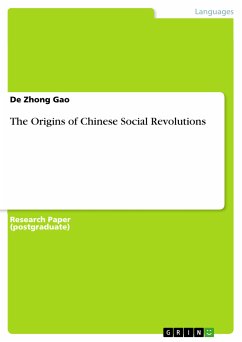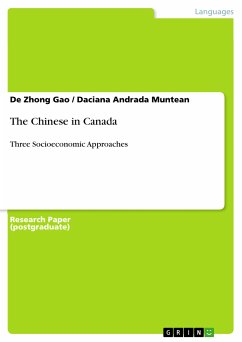Research Paper (postgraduate) from the year 2012 in the subject Orientalism / Sinology - Chinese / China, grade: "-", McGill University, language: English, abstract: Calling for public support and mobilization are generally considered taboo in authoritarian regimes. Yet, during the course of his February 1989 visit to Ukraine, Gorbachev (1931- ) appealed to his public supporters to help fight the enemies of reform and accelerate political and economic reformist programs, "You keep up the pressure. We [the Party] will press from the top, and you keep pressing from the bottom. Only in that way can [social transformations such as] perestroika succeed." This essay argues that in China, social transformations originate from the mass peasantry, but in order for social transformations to be effective, they need to be transformed into political dogma through effective leadership and party organization. The Rousseauist belief that the "goodness of simple men" can change mankind is not sufficient to revolutionize society, and rule out or alleviate the unilateral class divisions of the old régimes. This essay aims to analyze the role of leadership and the role of the masses in producing social changes in China and addressing regional concerns, and compare the French, Russian and Chinese revolution-of 1949-to illustrate how social transformations are sustained through the coordination of the leadership and mass mobilization. Finally, this essay will also examine how social transformations in China today have exclusively become an affair of party elites, casting aside the role of the masses in social revolutions. [...]
Dieser Download kann aus rechtlichen Gründen nur mit Rechnungsadresse in A, B, BG, CY, CZ, D, DK, EW, E, FIN, F, GR, HR, H, IRL, I, LT, L, LR, M, NL, PL, P, R, S, SLO, SK ausgeliefert werden.









